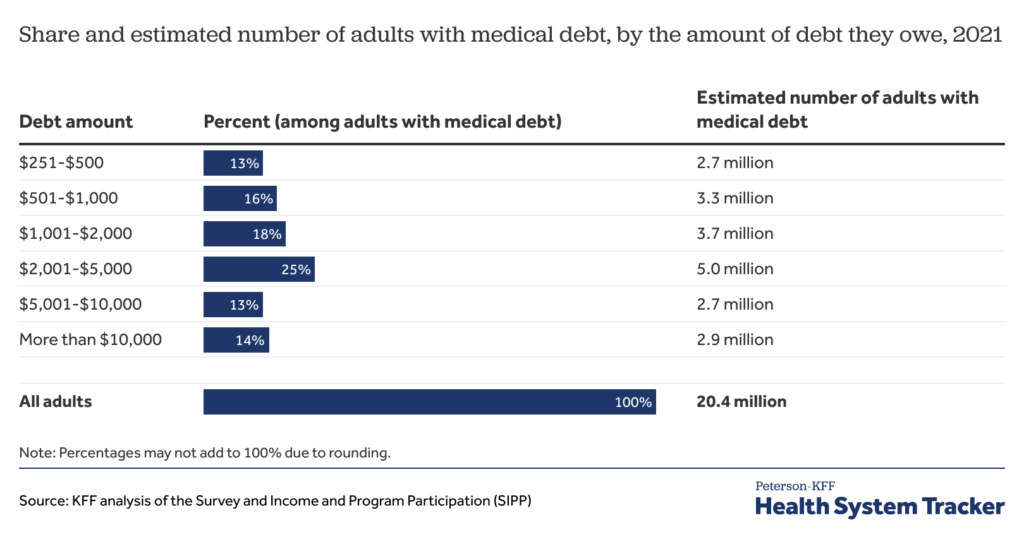Medical debt within the U.S. is a significant drawback. Whereas over 90% of people have Health insurance coverage, many individuals are uninsured and even these with insurance coverage could also be liable to excessive deductibles and copayments. A Kaiser Family Foundation (KFF) analysis makes use of information from Survey of Earnings and Program Participation (SIPP) and finds that:
…20 million individuals (practically 1 in 12 adults) owe medical debt…individuals in the US owe not less than $220 billion in medical debt. Roughly 14 million individuals (6% of adults) within the U.S. owe over $1,000 in medical debt and about 3 million individuals (1% of adults) owe medical debt of greater than $10,000. Whereas medical debt happens throughout demographic teams, individuals with disabilities or in worse Health, lower-income individuals, and uninsured persons are extra more likely to have medical debt.

A key coverage query, then, is ‘what would occur if we eradicated half or all of this debt?’ In response to a paper by Kluender et al. (2024), the reply is ‘not a lot’.
We partnered with RIP Medical Debt to conduct two randomized experiments that relieved medical debt with a face worth of $169 million for 83,401 individuals between 2018 and 2020. We monitor outcomes utilizing credit score studies, collections account information, and a multimodal survey. There are three units of outcomes. First, we discover no affect of debt reduction on credit score entry, utilization, and monetary misery on common. Second, we estimate that debt reduction causes a average however statistically important discount in fee of current medical payments. Third, we discover no impact of medical debt reduction on psychological Health on common, with detrimental results for some teams in pre-registered heterogeneity evaluation.
The New York Times has additional coverage of this maybe shocking consequence.